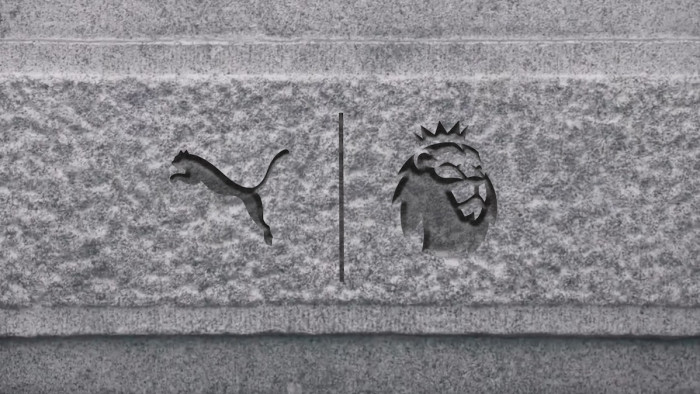While the Premier League title might have kept up its long-term evasion of Arsene Wenger, the Arsenal manager was able to get his name on something with a touch more permanence this season.
Having capped off a trophyless season (you can tell this is being written by an embittered Arsenal fan, can't you?), Wenger travelled to Alsace on Sunday - 20 km outside his home town of Strasbourg - to open the 'Stade de Arsene Wenger'.
With the ribbon cut on the 500-capacity stadium of USL Dippinheim, and our sniggers drawing to a stuttering halt, we turned our attention to the rest of the world's stadia in search of arenas, stands and changing rooms named after some more unlikely candidates.
Here's what we came up with.

The Guus Hiddink Stadium
Location: Gwangju, South Korea
Originally named the Gwangju World Cup Stadium, this elegant 44,118 capacity venue was built (you guessed it) for the 2002 World Cup. It hosted the memorable game in which hosts South Korea, guided by Guss Hiddink, knocked Spain out of the tournament 5-3 on penalties. To honour Hiddink's work, they stuck his name on it from 2011.

Dwight Yorke Stadium
Location: Bacolet, Tobago
Just outside the Tobago capital of Scarborough you'll find 105 metres x 68 metres of grass surrounded by 7,500 seats. It's named after local legend Dwight Yorke. It's not very impressive, so we used a picture of the man himself instead. Look at him. He was great, wasn't he?

Stadio Giuseppe Meazza
Location: Milan, Italy
"Wait, you mean the San Siro?"
We do - the stadium was actually renamed after the Italian star Giuseppe "Peppino" Meazza in 1980. One of the most prolific Milanese footballers of all time, he helped Italy win both the 1934 and 1938 World Cups. He scored a staggering 242 goals in 365 games for Inter Milan - a record no one has come close to matching.

Arnold Schwarzenegger Stadium/UPC Arena
Location: Graz, Austria
Once upon a football tie-in, the Austrian city of Graz decided to honour its local body-building, film-starring, Californian-governing hero Arnold Schwarzenegger with his own football stadium.
However, in 2005, Arnie's failure to prevent the execution of one Stanley Tookie Williams sparked a debate about ethics of honouring a man who apparently seemed cool with killing criminals. Rather than letting the argument play out, Schwarzenegger revoked the city of Graz's right to the use of his name, forcing the stadium to drop the name in favour of the UPC Arena.

Adolf Hitler Kampfbahn
Location: Stuttgart, Germany
The main stadium of Stuttgart has a long and varied history: when opened in 1933, it was named the Adolf Hitler Kampfbahn. Seating 35,000 spectators, it hosted the German Gymnastics Championships on its completion.
At the close of the Second World War, its name was changed to Century Stadium. After several decades of tweaks and changes (to both the name and the structure itself), it was given its most recent title of the Mercedes-Benz Arena in 2008.

Tofik Bakhramov Stadium
Location: Baku, Azerbaijan
You probably don't know the name Tofik Bakhramov, but England should probably have several stadia named after him. This famed Azerbaijani football official was pivotal in awarding the "Wembley Goal" - Geoff Hurst's extra time effort that helped England on their way to World Cup glory.
Here's to you, Bakhramov, and your fine 31,200-seater stadium.

Pope Francis Stadium
Location: Boedo, Buenos Aires, Argentina
Okay, so the ribbon is still yet to be cut on this one, but Argentine football club San Lorenzo announced in 2014 that it would name its new stadium after its most famous supporter, Pope Francis.

Stade Dider Drogba
Location: Levallois, France
At the tender age of 15 (though we're not sure 'tender' is ever a word you can associate with him), Dider Drogba joined the semi-pro club Levallois Sporting Club - a move that would help the small club gain around €700,000 when their graduate eventually moved to Chelsea. They returned the favour by naming their new stadium after him in 2010.
"This is a great moment in my life," Drogba said of occasion. "From now on, the children from this district are going to say: 'I'm going to play at the Stade Didier Drogba,' and that's enormous. It's more than flattering, it's historic. Having a stadium in France named after a footballer from the Ivory Coast, even if I'm proud of my France-Ivory Coast background, is a great proof of integration."
(Images: Wikipedia, Rex)
Latest
Related Reviews and Shortlists










